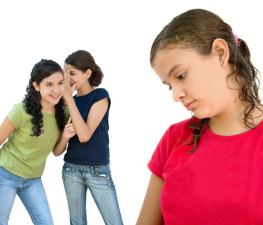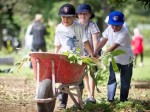 From the moment we are born our weight is the subject of discussion, comparison, measurement and classification.
From the moment we are born our weight is the subject of discussion, comparison, measurement and classification.
Weight monitoring
Even infants have an ideal body weight range. A ‘sweet spot” between 2.5kg (5.5lbs) and 4kg (9lbs) at which, relative to their length, they are usually considered healthy.1
A child’s ethnicity, genetic makeup and gestation factors all affect birth weight. So tracking an infants weight from birth and throughout childhood is an important health “tool”to ensure nutritional adequacy and that a child reaches its full growth potential.
Annual growth monitoring from 2-18yrs is designed to ensure that predicted weight, height, BMI and development targets are met and if not that medical attention is available to assess and help families to target problem areas. 2
But is regular weight assessment throughout life making us healthier?
Obesity rates are increasing
With 33% of children and 65% of adult now overweight or obese, New Zealand has the third fattest population in the OECD after USA and Mexico 3
Diabetes is affecting more young people
There are 240,000 Diabetics in NZ and the numbers with Type 2 are growing. 3 Type 2 Diabetes used to be a disease affecting people over 40yrs. Children rarely contracted it before 18yrs. Now obesity is causing children to develop this disease as young as 10 yrs. Specialist in the UK warn that this generation of children face premature eye and kidney damage and heart attacks before the age of 20yrs 4
Eating Disorders rates is concerning
Eating Disorders affect around 1.7% of the population (68,000 in 2006) The average age for onset in NZ is 17years although dropping with cases as young as 10yrs also presenting. 5
While public health campaigns are directed towards the prevention of obesity, it is important that the message is getting through to the right groups. In particular we need to make sure that the focus on reducing the number of overweight children does not make matters worse or have an adverse impact on increasing the number of underweight children 5
Negative talk causes harm
The aim of any weight intervention with adults or children should seek :
- “to do no harm”. 6
- To avoid teasing and stigmatizing by name calling or destructive comment. 7, 8
- To avoid overweight bias.
- To avoid bullying
Weight bias or stigma
This has been found to get worse with higher degrees of obesity 9 Research of weight bias in a school based sample of 4,746 adolescents in grades 7-12 found 30% of girls and 24.7% of boys reported being teased about their weight by their peers and 28.7% of girls and 16.1% of boys reported being teased by someone in their family 9
Children and adolescents who experience weight bias experience: more anxiety, loneliness, low self-esteem, body dissatisfaction, poor inter-personal relationships, depression and even suicidal behaviours 9,11-14 are more likely to cope by eating more food 10,15, having less exercise and are likely to be more overweight 5 years later 11
Bullying and body-based harassment
These have been found to be significant barriers for participation in physical activity 14
Teasing
Another recent cross over study of 356 adolescent girls found that weight teasing or being made fun of by families, was experienced by 58% of girls (not specifically overweight or obese).
It was the strongest factor associated with problematic weight-related outcomes such as higher BMI, body dissatisfaction,unhealthy weight control behaviours (fasting, eating very little, using food substitutes, skipping meals, smoking more cigarettes, going on a diet) and extreme weight control behaviours (vomiting, use of diet pills, laxatives or diuretics, and binge eating with loss of control) 13,15
Weight talk
Too much weight talk around the home can lead to an increased risk of obesity or eating disorders.11 Particularly when parents make negative comments regarding their own efforts at weight loss, discuss other people’s weight, encourage their own children to try radical diets or weight teasing.
Studies have found that girls who were teased frequently about their weight were 10 times more likely to binge eat as compared to girls whose family members did not tease them. 13
So what should parents do if their children are over or underweight? Is it safe to talk about weight or intervene?
Positive solutions for weight management
It is never too late to create a health promoting home environment and here are some tips to help parents achieve this:
Focus on and nurture the talents of your child.
When a child can see that achieving anything in life (e.g. academic or sporting success, the development of IT skills or artistic talents etc) takes hard work but is achievable, this builds their self-esteem. It also raises the possibility that the same amount of effort, when focused on improving health, can also make weight and fitness goals achievable.
Focus on healthy eating as an immediate source of energy to reach goals
If a child loves to play sport (or participate in music or is academic) encouraging healthy eating as an important part of Sports Nutrition (ie nutrition specific energy and nutrient provision) is likely to prove more empowering than a negative message that eating junk food results in heart disease or bone loss later in life.
Make home a place where being healthy and fit is easy
This could include buying healthy food and having more fruit and vegetables at home, starting a vegetable garden, not having TV in the bedroom and parents modelling of behaviours they want their children to emulate.11 As parents are the gate keepers of food and provide most of the cues for physical activity and small screen recreation it is important that they take part in any intervention 16
Switch from negative food messages to a more positive approach
For instance rather than focusing on media reports of quick weight loss diets or formula, or joining into the good food/ junk food debate, focus instead on food being a source of nutrients that build stronger, fitter body’s. 10,16
Learn about the quantities of food that you and your children need to grow and develop and the correct portion sizes of foods that stop hunger. Also encourage children to try a wide range of different foods and to learn to prepare simple meals and snacks that everyone can enjoy.
Provide a supportive environment promoting lots of talking and even more listening.
Research shows that shared family meal time can protect against eating disorders providing an important time for children to share experiences of the day and connect with one another.11
Seek professional help
Existing evidence supports the view that childhood obesity programs are not associated with psychological harm provided the intervention:
- Focuses on health and healthy lifestyles 17,18
- Is multicomponent- healthy diet, physical activity and behavioural management techniques e.g. problem solving, goal setting, managing change, self monitoring and healthily thinking about food and the body and relapse prevention 17,18
- Is medically supervised 17,18.19
- Involves the parents, especially in the preadolescent age group 17
- Occurs for a minimum of 12 weeks. 19
Also the family has to be ready for treatment and prepared to make changes 21-24 as futile attempts at therapy can undermine confidence 22
Obesity and eating disorders share many risk factors for their development including inappropriate dieting/dietary restriction and body dissatisfaction. Also both obesity and eating disorders are influenced by media and weight teasing 15,25 Fear of harm is no justification for avoiding intervention however it does need to be undertaken with care and professional supervision. 6
Take action
If you are concerned about your own weight or that of a family member or would like nutritional advice for pregnancy then contact us today. Our programs not only cover your nutrient needs but how to implement lifestyle and behavioural change. We also offer refresher courses for past clients, ongoing nutrition support and education.
Further reading
If you would like more information read more of Lea’s articles on this topic:
Tune into your parenting style for better family health
Don’t let disordered eating ruin your performance
Grandparents can help fight childhood obesity
Overcome misconceptions about weight for better family health
Could the French Diet reduce obesity in NZ?
Playtime helps combat childhood obesity
Teach your child to cook for better health
References
- Seppa N, Bigger babies: High birthweights may signal later health risks May 16 2014 https://www.sciencenews.org/article/big-babies-high-birthweight-may-signal-later-health-risks
- Reily JJ. Assessment of obesity in children and adolescents: synthesis of recent systematic reviews and clinical guidelines. J Hum Nutr Diet. 2010 [cited 2010 10 07];23:205-11. Abstract available from: http://www.ncbi.nlm.nih.gov/pubmed/20337839
- Ministry of health statistics http://www.health.govt.nz/nz-health-statistics/health-statistics-and-data-sets/obesity-data-and-stats
- Diabetes in the UK 2012 https://www.diabetes.org.uk/Documents/Reports/Diabetes-in-the-UK-2012.pdf
- Eating Disorders Association of NZ (EDANZ) statistics http://www.ed.org.nz/index.asp?pageID=2145862939
- Hall K. Paediatric Obesity Part 1 March 2011 Finding common ground for obesity intervention and eating disorder prevention pennutrition.com
- Canadian Institute of Health Research (CIHR). Obesity and eating disorders: seeking common ground to promote health. A national meeting of researchers, practitioners and policy makers. November 2007. Calgary AB Canada. [cited 2011 01 19]. Available at http://www.obesityandeatingdisordersy mposium.ca/downloads/OBED2007%20 Final%20Report.pdf
- O’Dea JA. Prevention of child obesity: ‘first, do no harm’. Health Ed Res. 2004 [cited 2008 02 07];20(2):259-65. Available from: http://her.oxfordjournals.org/content/2 0/2/259.long
- Eisenberg ME,Neumark-SztainerD, Story M. Associations of weight-based teasing and emotional well-being among adolescents. Arch Pediatr Adolesc Med. 2003 Aug [cited 2008 02 07];157(8):733-8. Abstract available from: http://www.ncbi.nlm.nih.gov/pubmed/1 291277
- Puhl RM, Latner JD. Stigma, Obesity and the health of the nation’s children. Psychol Bull. 2007 [cited 2008 02 07];133(4):557-80. Abstract available from: http://www.ncbi.nlm.nih.gov/pubmed/1 7592956
- Neumark-Sztainer D. Preventing obesity and eating disorders in adolescents: what can health care providers do? Journal of Adolescent Health. 2009 [cited 2010 11 21]
- Scottish Intercollegiate Guidelines Network. Management of Obesity: A national clinical guideline. 2010 [cited 2010 11 01]. Available from: http://www.sign.ac.uk/guidelines/fulltext/115/in dex.html
- Neumark-Sztainer D,Bauer KW,Friend S, Hannan PJ, Story M, Berge JM. Family weight talk and dieting: how much do they matter for body dissatisfaction and disordered eating behaviours in adolescent girls? J Adolesc Health. (2010) [cited 2010 12 10]; 47(3):270-6. Abstract available from: http://www.ncbi.nlm.nih.gov/pubmed/2 070856
- Storch EA, Milsom VA, DeBradanza N, Lewin AB, Geffken GR, Silverstein JH. Peer victimization, psychosocial adjustment, and physical activity in overweight and at-risk-for-overweight youth. J Pediatr Psychology. 2006 [cited 2010 11 30];32(1):80-9. Available http://jpepsy.oxfordjournals.org/content /32/1/80.full
- Haines J, Neumark-Sztainer D, Eisenberg ME, Hannan PJ. Weight teasing and disordered eating behaviours in adolescents: longitudinal findings from project EAT (Eating Among Teens). Pediatrics. 2006 [cited 2010 09 20];117(2):e209-e215. Available from: http://pediatrics.aappublications.org/cgi /content/full/117/2/e209
- Gibbins K. Interventions for childhood overweight and obesity: a place for parenting skills. Nutrition and Dietetics: The Journal of the Dietitians Association of Australia. 2007 [cited 2008 02 11];64(3)142-4. Abstract available from: http://www.blackwell- synergy.com/doi/abs/10.1111/j.1747- 0080.2007.00185.x
- Baker S, Barlow S, Cochran W, Fuchs G, Klish W, Krebs N, et al. Overweight children and adolescents: a clinical report of the North American Society for Pediatric Gastroenterology, Hepatology and Nutrition. J Pediatr Gastroenterol Nutr. 2005 [cited 2008 02 07];40(5):533-43. Abstract available from: http://www.ncbi.nlm.nih.gov/pubmed/1 5861011
- Oude Luttikhuis H, Baur L, Jansen H, Shrewsbury VA, O’Malley C, Stolk RP, Summerbell CD. Interventions for treating obesity in children. Cochrane Database of Syst Rev. 2009 Jan 21 [cited 2010 11 21];(1):CD001872. Abstract available from: http://www.ncbi.nlm.nih.gov/pubmed/1 9160202
- Whitlock EP, O’Connor EA, Williams SV, Beil TL, Lutz KW. Effectiveness of weight management interventions in children: a targeted systematic review for the USPSTF. Pediatrics. 2010 [cited 2010 11 21];125:e396-e418. Available from: http://pediatrics.aappublications.org/cgi /reprint/peds.2009- 1955v1maxtoshow=&hits=2&RESULTFORMAT=&titleabstract=%28child+or+adolescent%29+AND+%28quality+and+measurement%29+OR+%28quality+and +improvement%29&searchid=1&resour cetype=HWCIT
- Follansbee-Junger K, Janicke DM, Sallinen BJ. The influence of a behavioral weight management program on disordered eating attitudes and behaviors in children with overweight. J Am Diet Assoc. 2010 [cited 2010 12 10];110: 1653-9. Abstract available from: http://www.ncbi.nlm.nih.gov/pubmed/2 1034878
- Barlow S. Expert committee recommendations regarding the prevention, assessment and treatment of child and adolescent overweight and obesity: summary report. Pediatrics. 2007 [cited 2010 09 01];120(S4):S164- 92. Available from: http://pediatrics.aappublications.org/cgi /reprint/120/Supplement_4/S164
- Reinehr T, Widhalm K, l’Allemand D, Wiegand S, Wabitcsch M, Holl RW. Two- year follow-up in 21, 784 overweight children and adolescents with lifestyle intervention. Obesity. 2009 [cited 2010 11 23];17(6):1196–9. Abstract available from: http://www.ncbi.nlm.nih.gov/pubmed/1 9584877
- Krebs NF, Jacobson D, Nicklas TA, Guilday P, Styne D. Assessment of child and adolescent overweight and obesity. Pediatrics. 2007 [cited 2010 09 01];120:S193-228. Available from: http://pediatrics.aappublications.org/cgi /reprint/120/Supplement_4/S193
- Vallis M. Assessment of readiness to change. Chapter 5. In: the 2006 Canadian clinical practice guidelines on the management and prevention of obesity in adults and children CMAJ. 2007 [cited 2008 02 07];176(8 suppl):Online 1-117. Available from: cmaj.ca/cgi/content/full/176/8/S1/ DC1
- Neumark-Sztainer. The interface between the eating disorders and obesity fields: moving toward a model of shared knowledge and collaboration. Eating Weight Disord. 2009 [cited 2011 01 19];14:51-8. Abstract available from: http://www.ncbi.nlm.nih.gov/pubmed/1 936714























































Leave a Reply